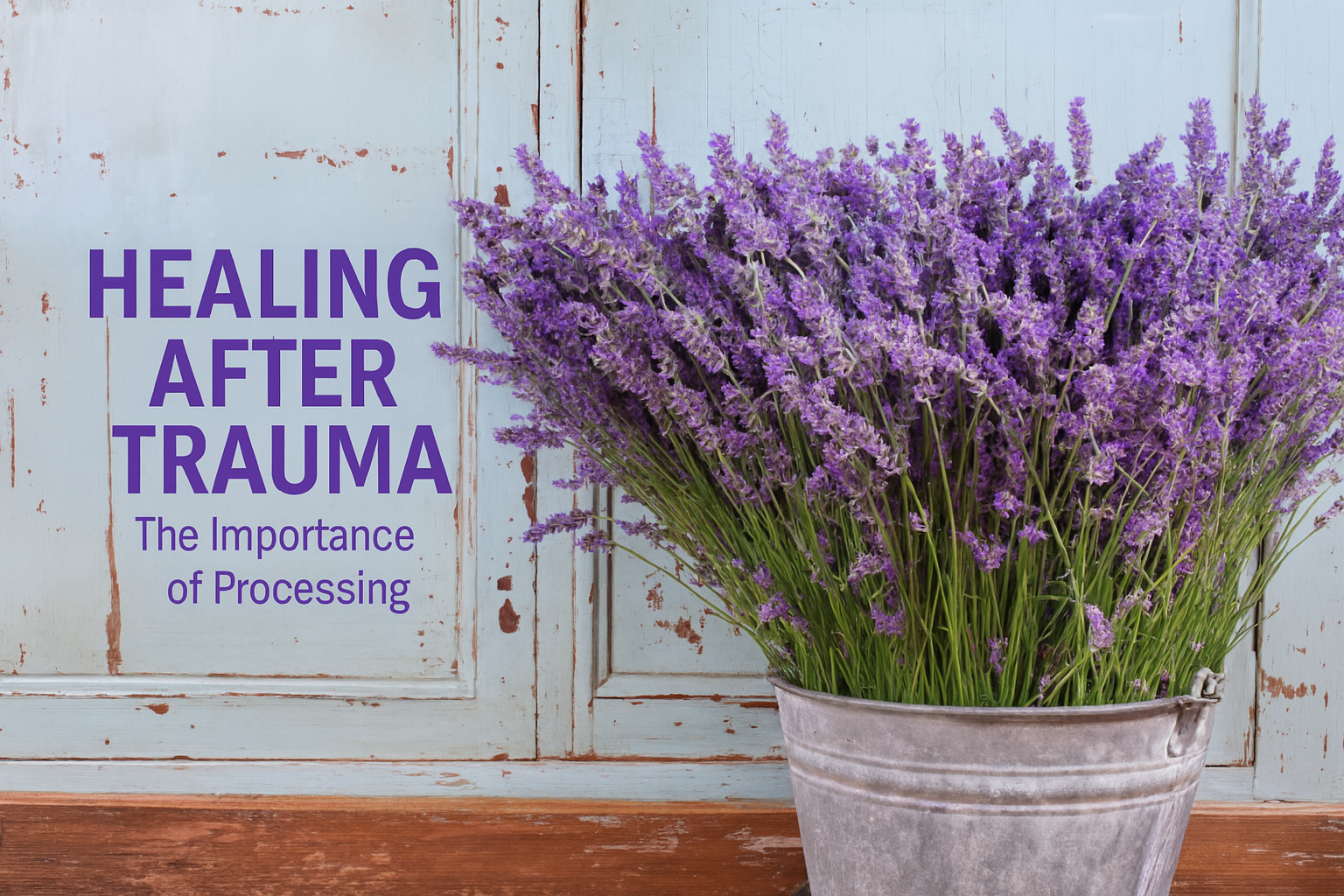Trauma doesn't have to define your story. Healing is possible, and it begins with understanding that your pain has purpose.
Healing from trauma is not a destination—it's a journey. A journey that requires courage, patience, and most importantly, the willingness to process what you've been through rather than simply pushing it aside.
Many people believe that healing means forgetting, but that's not true healing. True healing happens when we can look at our experiences, acknowledge the pain they caused, and choose to move forward with wisdom rather than wounds.
"He heals the brokenhearted and binds up their wounds." - Psalm 147:3
The Importance of Processing
Processing trauma means allowing yourself to feel the emotions that come with your experiences. It means sitting with the discomfort long enough to understand what happened and how it affected you. This isn't about dwelling in the past—it's about extracting the lessons and leaving the pain behind.
When we refuse to process our trauma, it doesn't disappear. Instead, it shows up in our relationships, our decision-making, our self-worth, and our ability to trust. Unprocessed trauma becomes the lens through which we see the world, often distorting our perception of ourselves and others.
Steps Toward Healing
1. Acknowledge What Happened
The first step is acknowledging that trauma occurred. This isn't about blame or shame—it's about truth. You cannot heal what you refuse to acknowledge.
2. Feel Your Feelings
Allow yourself to experience the emotions that come up. Anger, sadness, fear—these are all valid responses to trauma. Don't rush to "get over it." Give yourself permission to feel.
3. Seek Support
Healing doesn't happen in isolation. Whether it's through counseling, support groups, or trusted friends, having people who can walk with you through this process is crucial.
4. Practice Self-Compassion
Be gentle with yourself. Healing takes time, and there will be setbacks. Treat yourself with the same kindness you would show a dear friend going through a difficult time.
The Role of Faith in Healing
For many, faith plays a crucial role in the healing process. Knowing that God sees your pain and has a plan for your restoration can provide hope when the journey feels overwhelming. Prayer, meditation, and connecting with your spiritual community can be powerful tools in your healing toolkit.
Remember, seeking professional help is not a sign of weak faith—it's wisdom. God often works through counselors, therapists, and medical professionals to bring about healing.
Creating New Patterns
As you process your trauma, you'll begin to recognize unhealthy patterns that developed as coping mechanisms. This awareness is the first step toward creating new, healthier patterns. It might mean learning to set boundaries, changing how you respond to stress, or developing new ways of thinking about yourself and your worth.
Healing also involves learning to trust again—trust in yourself, trust in others, and trust in the process of life itself. This doesn't mean becoming naive or ignoring red flags. It means not allowing past hurts to rob you of future joy.
A Message of Hope
Your trauma is part of your story, but it's not the end of your story. You have the power to write new chapters filled with healing, growth, and purpose. The pain you've experienced can become the very thing that helps you help others.
Moving Forward
Healing from trauma is not about returning to who you were before—it's about becoming who you're meant to be. The process will change you, and that's not something to fear. Often, our greatest growth comes from our greatest challenges.
As you continue on this journey, remember that healing is not linear. There will be good days and difficult days. Progress might feel slow at times, but every step forward matters. You are stronger than you know, more resilient than you realize, and more loved than you can imagine.
Your healing journey matters—not just for you, but for everyone whose life you'll touch along the way. Keep going. Keep processing. Keep healing. The world needs the whole, healed version of you.
